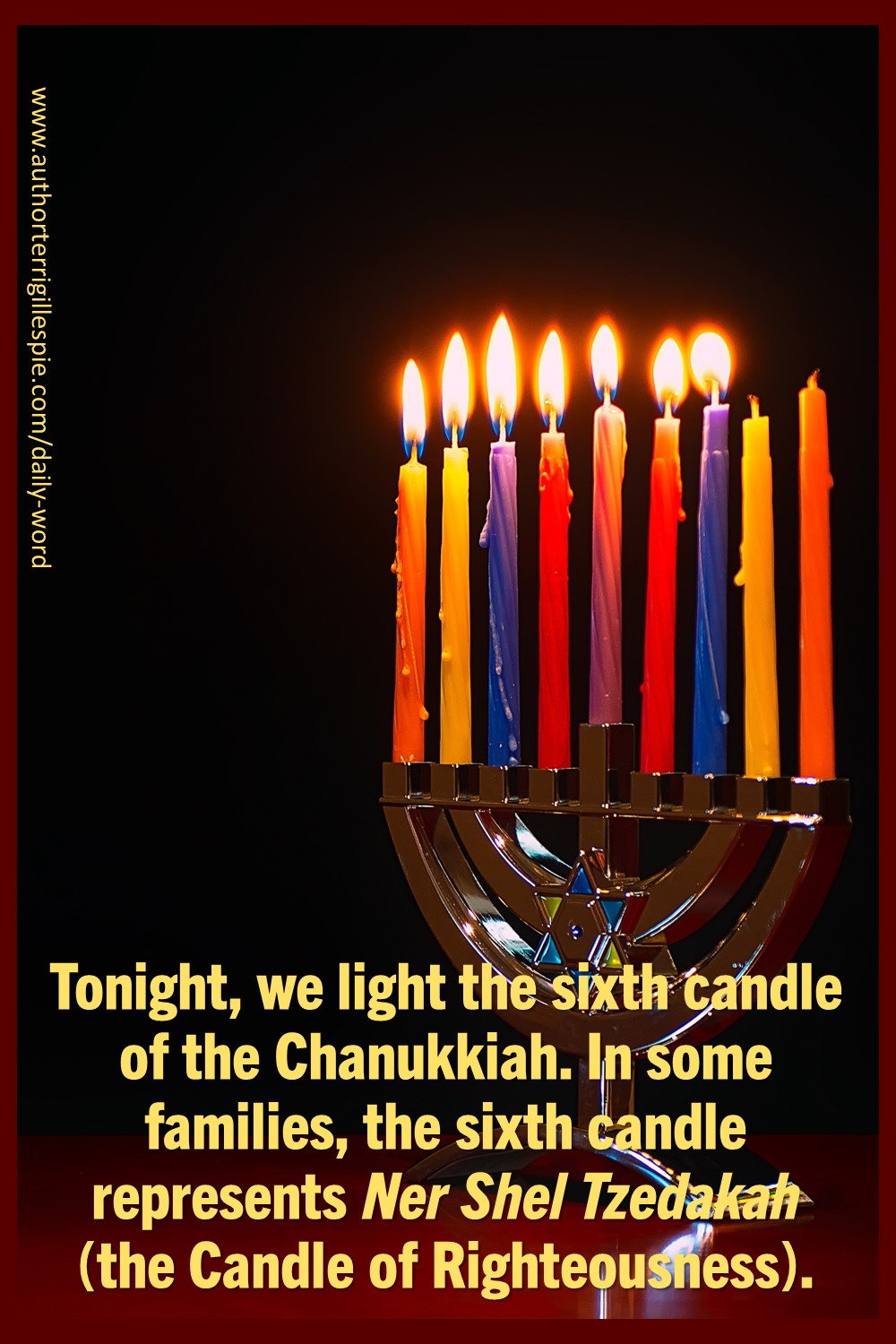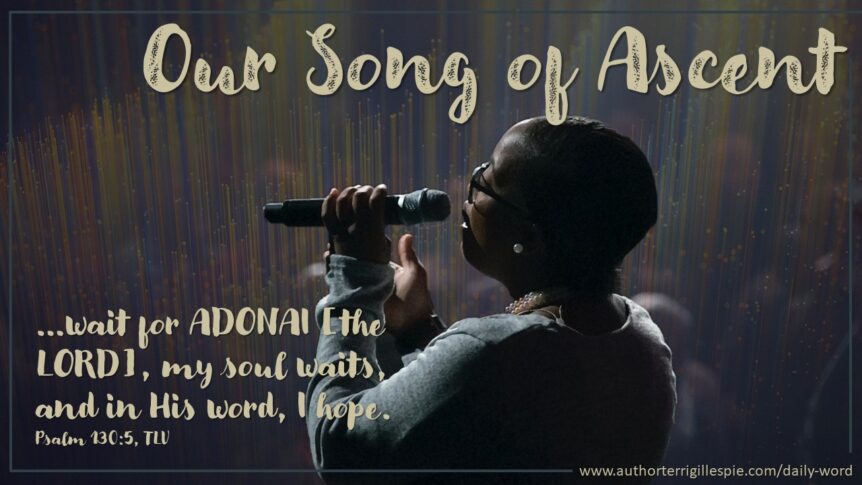. . . wait for ADONAI [the LORD], my soul waits,
and in His word, I hope. Psalm 130:5, TLV
 Our Song of Ascent. Today’s verse is nestled within a Song of Ascents (vs. 1) psalm. If you’ve read my devotions over the years, you probably remember that many scholars believe these were psalms sung by Jewish pilgrims on their way to Jerusalem. Or possibly while ascending Mount Zion or the steps of the Temple.
Our Song of Ascent. Today’s verse is nestled within a Song of Ascents (vs. 1) psalm. If you’ve read my devotions over the years, you probably remember that many scholars believe these were psalms sung by Jewish pilgrims on their way to Jerusalem. Or possibly while ascending Mount Zion or the steps of the Temple.
There are three festivals in the Bible where God commands that no matter where a Jewish family lived, they were to make their way to Jerusalem. Those feasts were Pesach [Passover], Shavuot [Pentecost], and Sukkot [Feast of Tabernacles]. Should the whole family be unable to make the trip because of illness or tragedy, at least the men were to travel to the Temple and bring an offering—an offering over and above their tithe.
If you’ve been to Israel, you might have noticed that unless a person resides within the City, everyone ascends to Jerusalem. Why? Because Jerusalem was built on Mount Zion. This means that no matter what direction the pilgrims came from, they would have to climb the mountain — they would ascend.
unless a person resides within the City, everyone ascends to Jerusalem. Why? Because Jerusalem was built on Mount Zion. This means that no matter what direction the pilgrims came from, they would have to climb the mountain — they would ascend.
A Song of Ascents.
Out of the depths I cry to You, ADONAI!
Lord, hear my voice!
Let Your ears be attentive to the sound of my supplications. (vss. 1-2, TLV)
Here’s what I love about knowing the context and culture of the Bible. The beauty of this psalm, and the other Ascent Songs, was that even before the pilgrims arrived at the Temple, they were in worship. In the case of this psalm, they were in a posture of repentance.
If You, ADONAI, kept a record of iniquities—
my Lord, who could stand?
For with You there is forgiveness,
so You may be revered. (vss. 3-4)
 What are the lyrics to our Songs of Ascents? How do we prepare to attend services? I must confess, many times my thoughts are on things like (and no disrespect intended):
What are the lyrics to our Songs of Ascents? How do we prepare to attend services? I must confess, many times my thoughts are on things like (and no disrespect intended):
Out of the depths I cry to You, ADONAI! Lord, hear my voice! Will we get caught in traffic and be late? My pasta salad. Will people like my pasta salad for the oneg? I’m struggling with concern about my mother and my family—and missing them. Let Your ears be attentive to the sound of my supplications—er—complaining.
What if I focused on worshipping and offering my supplications to my Heavenly Father? Focused on gratitude for His forgiveness? Asking for forgiveness? To seek Him first?
What would happen if we all did that? Sang our Songs of Ascent and entered His “gates” with thanksgiving (Psalm 100)?
Here’s my revised Song:
Out of the depths I cry to You, ADONAI! Lord, hear my voice! My mind is divided with the troubles of the week and being in worship with gratitude. Let Your ears be attentive to the sound of my supplications. I need to hear Your Voice amid worship, fellowship, and those around me. Please forgive my impatience and lack of gratitude. It is an honor to serve You and our family.
What would be your Song of Ascent? How/Would you change the lyrics?
Hanukkah: Tonight, we light the sixth candle of the Chanukkiah.  In some families, the sixth candle represents Ner Shel Tzedakah (the Candle of Righteousness). Typically, Tzedakah in orthodox homes, means giving. There are Tzedakah “boxes” in synagogues and homes where extra change or large donations are made.
In some families, the sixth candle represents Ner Shel Tzedakah (the Candle of Righteousness). Typically, Tzedakah in orthodox homes, means giving. There are Tzedakah “boxes” in synagogues and homes where extra change or large donations are made.
But these mitzvot (good deeds) don’t have to involve money. A plate of cookies or taking someone to the market or a hug when someone is hurting, are other examples of families shining the light of righteousness to others. Because being attentive to the needs of others is a muscle we can develop. Listening to the Holy Spirit’s prompting helps.



